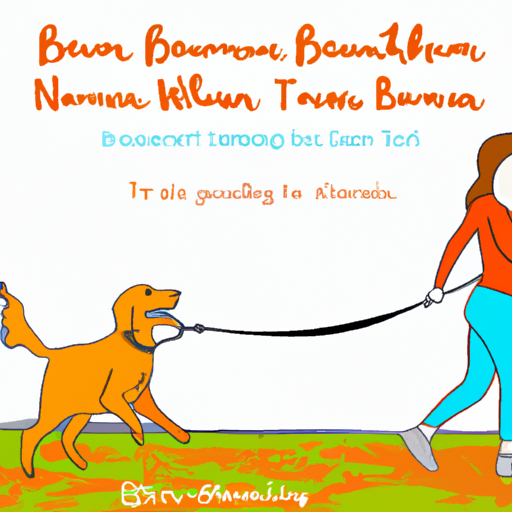Understanding the Behavior
You might have noticed your pooch pulling on the leash during walks. This behavior isn’t just an exercise in frustration for you, the caregiver, but could also indicate some underlying issues. Dogs pull on the leash mainly due to excitement, fear, or a lack of training. Let’s delve deeper into each reason.
- Excitement: Dogs are naturally curious and energetic creatures. For them, going on a walk is an opportunity to explore the world. The scents, sights, and sounds can be overwhelmingly exciting, leading them to pull on the leash to move faster.
- Fear: Sometimes, your furry friend might pull on the leash out of fear or anxiety. This could be due to loud noises, unfamiliar surroundings, or the presence of other dogs.
- Lack of Training: Often, dogs pull simply because they haven’t been trained not to. Dogs don’t naturally know how to walk on a leash; it’s a learned behavior.
The Impact on Health
Pulling on the leash isn’t just an annoyance; it can also be harmful to your dog’s health. Excessive pulling can cause injury to their neck, spine, or throat. It can also lead to increased stress levels, which can negatively impact their overall health.
How to Prevent Leash Pulling
Preventing leash pulling is a crucial part of dog training, and it requires consistency, patience, and positive reinforcement. Here are some steps you can take:
- Start Training Early: The sooner you start leash training, the better. Puppies are naturally more receptive to training.
- Use the Right Equipment: A no-pull harness can be a great tool to discourage pulling. These harnesses make pulling uncomfortable for the dog without causing harm.
- Reward Good Behavior: When your dog walks nicely without pulling, reward them with treats or praise.
| Product | Description | Rating |
|---|---|---|
| Front-Clip No-Pull Harness | Redirects dog’s forward motion | 4.5/5 |
| Head Halter | Gives control of dog’s head and direction | 4/5 |
| Martingale Collar | Tightens slightly when dog pulls | 4.2/5 |
The Role of Professional Training
While you can certainly train your dog at home, sometimes it’s beneficial to seek help from a professional trainer. They have the expertise and experience to address the issue effectively and can provide you with tools and techniques to reinforce the training at home.
FAQ
Q: Should I punish my dog for pulling on the leash?
A: No, punishment can often make the problem worse. Instead, use positive reinforcement to reward good behavior.
Q: How long does it take to train a dog not to pull on the leash?
A: It varies from dog to dog. Consistency and patience are key.
Q: Can pulling on the leash harm my dog?
A: Yes, excessive pulling can cause physical harm, including injuries to the neck, throat, and spine.
Remember, understanding and addressing leash pulling is not just about making walks more enjoyable. It’s about ensuring the health and happiness of your furry friend.



